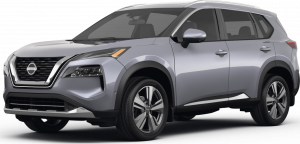
Fossil fuels and their harmful emissions have led to revolutionary changes in the automobile industry. As a result of technological advancement, electric vehicles and hybrids have come up as viable solutions to reduce the carbon footprints of vehicles. Despite their higher price, both these vehicles are gaining a lot of momentum among the buyers. If you are looking for an eco-friendly vehicle running on either of these technologies, here are some important factors to keep in mind:
What Makes Electric Cars a Good Choice?
Over the past few decades, the automobile industry has changed in several ways. Fully electric vehicles (EVs) represent the era of electrification in this industry. EVs run on a rechargeable battery pack that enhances their capacity by many notches. Some can cover a distance of more than 250 miles without having to be recharged.
Even from the perspective of charging infrastructure, things are changing fast as more charging stations are coming up across the country.
As a car buyer, if you want an eco-friendly vehicle with promising performance and sustainable efficiency, you can go for an electric car. On the technical front, they use an electric motor to draw the energy from a battery pack fitted. The advantages of an electric vehicle are:
- Both efficiency and mechanical simplicity are inherent in electric vehicles.
- They are easy to handle and require minimum maintenance over the lifetime.
- There is a zero noise driving experience for comfortable rides.
- EVs come with a lot of instant torque.
- Since they run solely on electricity, there are no emissions.
- Due to a low center of gravity, EVs handle much easier than traditional vehicles.
Electric vehicles can be costly, up to 70 percent more expensive than traditional vehicles. Also, they need a long charging time that may range from 30 minutes to 12 hours, depending on the size of the battery and the amount it needs to charge.
What Makes Hybrid Cars a Good Choice?
When it comes to the transition from fossil fuels to the new era of electric vehicles, hybrid cars represent this change. By reducing emissions and improving performance, they bridge the gap between traditional vehicles and fully electric cars. Hybrid vehicles have three major variants that include Mild Hybrids, Series Hybrids and Plug-In Hybrids.
Each of these variants has specific features and benefits. Mild Hybrids use an electric drivetrain driven by an internal combustion engine to present a cost-effective option for the buyers.
On the other hand, Series Hybrids comes with a downsized gasoline engine along with an electric battery system to facilitate easy performance on any road conditions. Plug-In Hybrids are the closest to fully-electrified cars. They also have a higher range due to a gasoline engine. Benefits of using hybrids are:
- Hybrids are better than vehicles using traditional fossil fuels
- They have superior performance and excellent efficiency due to a gasoline-powered engine.
- The reduced lag and light-weight design of Mild Hybrids is appealing.
- Better range and a lower cost of buying than fully electric vehicles.
Both of these options have lots of offer. Your decision should be based on your requirements, expectations and budget for buying a car.


















